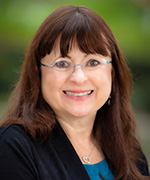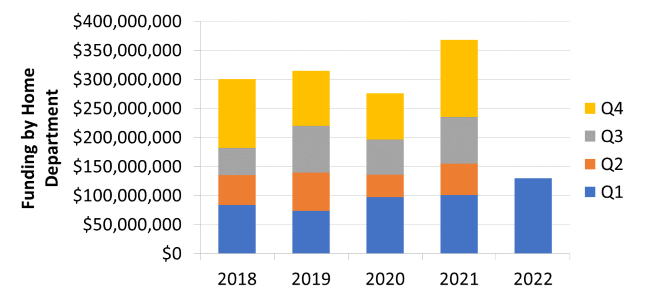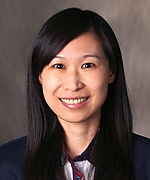School of Medicine Office of Research Newsletter
Volume 1.2 - January 2022

Message from the Vice Dean for Research
 I am excited and honored to introduce this second edition of the quarterly newsletter from the School of Medicine (SOM) Office of Research, as the new vice dean for research. It is truly a pleasure to assume this leadership role at a time of great opportunity for the SOM and our outstanding research portfolio. I am working hard to get up to speed with the people, programs, and assets of the community, and have already been fortunate to meet many campus thought leaders and innovators. Likewise, it is a privilege to be able to work with the members of our talented SOM Office of Research team, who work tirelessly to ensure that research activities can be facilitated, accelerated, recognized and appreciated in the SOM and beyond. I definitely wish to thank Drs. Wun, Haczku and Erdembileg for all of their efforts in ensuring that operations have continued smoothly during the extended period when there has been no permanent vice dean.
I am excited and honored to introduce this second edition of the quarterly newsletter from the School of Medicine (SOM) Office of Research, as the new vice dean for research. It is truly a pleasure to assume this leadership role at a time of great opportunity for the SOM and our outstanding research portfolio. I am working hard to get up to speed with the people, programs, and assets of the community, and have already been fortunate to meet many campus thought leaders and innovators. Likewise, it is a privilege to be able to work with the members of our talented SOM Office of Research team, who work tirelessly to ensure that research activities can be facilitated, accelerated, recognized and appreciated in the SOM and beyond. I definitely wish to thank Drs. Wun, Haczku and Erdembileg for all of their efforts in ensuring that operations have continued smoothly during the extended period when there has been no permanent vice dean.
As of this writing, I have been in Sacramento for just a month. I accepted the position of vice dean not only because of my perception of the many strengths of UC Davis SOM, but also because of my immediate sense that the leaders of the institution have both a vision for the future of research as well as the commitment to invest in that vision. One great example will be the university/private/community partnership embodied in Aggie Square, where the SOM will be an anchor tenant and where discoveries made by our faculty will be propelled into the market as real-world cures. We can expect groundbreaking soon! Similarly, there are extraordinarily bright prospects for collaboration with colleagues from other schools and colleges within the broader University, which will be needed to address society’s most challenging problems. I look forward to brokering and incentivizing such partnerships. Finally, the SOM Office of Research will be working hard to address our infrastructure needs, to streamline operations wherever possible, and to facilitate research efforts, particularly by assisting early career researchers and those submitting large, complex proposals.
One of my most important roles will be to serve as cheerleader-in-chief for the SOM’s many research accomplishments. So, don’t hesitate to reach out to me with news of a recent discovery, publication or grant. Likewise, I hope to hear from a broad spectrum of the faculty as to how we can assist you with your research goals. My inbox will always be open at kbarrett@ucdavis.edu.
Kim E. Barrett, Ph.D.
Vice Dean for Research and Distinguished Professor of Physiology and Membrane Biology
UC Davis School of Medicine
SOM Extramural Funding - FY2022 Quarter 1 Update
School of Medicine FY2022 is off to a great start, hitting a record high in extramural funding for Quarter 1 at $129M. The top three contributors are Angela Haczku ($24.2M) for Krueger v. Wyeth Settlement, Bradley Pollock ($14.7M) for the California Department of Public Health (CDPH) Healthcare-Associated Infections (HAI) Prevention Program, and Jeffrey Hoch ($7.5M) for CDPH Healthy Living Clinic Initiative.

Recognition
 Congratulations to Ching-Hsien Chen, associate professor in the Department of Internal Medicine, Division of Nephrology, for being named a 2021-2022 UC Davis Chancellor’s Fellow. Chen’s application was supported by SOMOR based on the strength of her robust and productive research history in cancer and pulmonary fibrosis, national recognition, and excellent track record in teaching.
Congratulations to Ching-Hsien Chen, associate professor in the Department of Internal Medicine, Division of Nephrology, for being named a 2021-2022 UC Davis Chancellor’s Fellow. Chen’s application was supported by SOMOR based on the strength of her robust and productive research history in cancer and pulmonary fibrosis, national recognition, and excellent track record in teaching.
Established in 2000, the UC Davis Chancellor’s Award honors the achievements of outstanding faculty members early in their careers. Chen will be the recipient of a one-time award of $25,000 to be used in support of her research, teaching, and service activities.
Grant Funding Updates
National Policymaking Efforts about AI and Equity
As previously reported in the Policy Alert, the White House Office of Science and Technology Policy (OSTP) held a series of listening sessions in November to address issues in artificial intelligence (AI) and other data-driven technologies as part of its effort to develop a “Bill of Rights for an Automated Society.” Issues raised in the sessions included concerns about biases embedded in datasets and algorithms used by AI tools, as well as how best to deal with the current patchwork of laws while avoiding blanket regulations that do not distinguish between types and uses of AI. Though the listening sessions have concluded, responses to the OSTP request for information on current or planned uses of AI-enabled biometric technologies in the private and public sectors will be accepted until January 15, 2022. Separately, the National Institute of Standards and Technology is pursuing the development of a risk management framework for AI.
NSF Dear Colleague Letters
Dear Colleague Letters (DCLs) are released as needed by the National Science Foundation (NSF) to inform the NSF research community of relevant requests for information, upcoming opportunities, and policy changes.
Impactful Publications
 In the October issue of JAMA Psychiatry, Ruth Shim, professor in the Department of Psychiatry and Behavioral Sciences and Laura Tully, associate professor in the Department of Psychiatry and Behavioral Sciences, with a team of researchers from Cornell University, Harbor-UCLA and University of Pittsburgh, published the results of their study that examined the numbers of scientists from traditionally underrepresented-in-medicine backgrounds who are serving on editorial boards and in leadership positions in peer-reviewed psychiatry/neuroscience journals. This study adds valuable data to the so-far limited available information on the race and ethnicity of scientists serving on editorial boards of peer-reviewed journals for any medical specialty. Race and Ethnicity of Editorial Board Members and Editors as an Indicator of Structural Racism in Psychiatry and Neuroscience Journals
In the October issue of JAMA Psychiatry, Ruth Shim, professor in the Department of Psychiatry and Behavioral Sciences and Laura Tully, associate professor in the Department of Psychiatry and Behavioral Sciences, with a team of researchers from Cornell University, Harbor-UCLA and University of Pittsburgh, published the results of their study that examined the numbers of scientists from traditionally underrepresented-in-medicine backgrounds who are serving on editorial boards and in leadership positions in peer-reviewed psychiatry/neuroscience journals. This study adds valuable data to the so-far limited available information on the race and ethnicity of scientists serving on editorial boards of peer-reviewed journals for any medical specialty. Race and Ethnicity of Editorial Board Members and Editors as an Indicator of Structural Racism in Psychiatry and Neuroscience Journals
 Published in the October issue of JAMA Oncology, Mamta Parikh, assistant professor in the Department of Internal Medicine and affiliate of the UC Davis Comprehensive Cancer Center, and Primo Lara, Jr., executive associate dean for Cancer Programs and director of the UC Davis Comprehensive Cancer Center. They serve as co-authors on the findings of the research on the addition of berzosertib, an enzyme inhibitor, to the chemotherapy drug, gemcitabine, in the treatment of patients with metastatic urothelial cancer. Effect of Cisplatin and Gemcitabine With or Without Berzosertib in Patients With Advanced Urothelial Carcinoma
Published in the October issue of JAMA Oncology, Mamta Parikh, assistant professor in the Department of Internal Medicine and affiliate of the UC Davis Comprehensive Cancer Center, and Primo Lara, Jr., executive associate dean for Cancer Programs and director of the UC Davis Comprehensive Cancer Center. They serve as co-authors on the findings of the research on the addition of berzosertib, an enzyme inhibitor, to the chemotherapy drug, gemcitabine, in the treatment of patients with metastatic urothelial cancer. Effect of Cisplatin and Gemcitabine With or Without Berzosertib in Patients With Advanced Urothelial Carcinoma
Get to Know SOMOR

The Evaluation Unit collaborates with UC Davis Health centers, training programs, and researchers to design and implement evaluation plans, support grant writing, and disseminate evaluation findings. The unit officially became part of the SOM Office of Research in 2019, but it has served the program evaluation needs of the UC Davis Health research community since 2006.
What types of programs does the Evaluation Unit work with?
The Evaluation Unit has a dynamic portfolio that includes the Clinical and Translational Science Center, the Betty Irene Moore School of Nursing, and the Western Center for Agricultural Health and Safety. The unit also evaluates the SOM’s NIH institutional K career development programs (CTSC, BIRCWH, and Paul Calabresi Clinical Oncology) and multiple T32 training programs. Other grants, programs and special projects make up the rest of the portfolio. Just under half of the unit’s over twenty projects are funded by NIH or other federal agencies, such as the CDC, HRSA, and PCORI. The Evaluation Unit is primarily self-supporting by recharging for services.
What kind of grant support does the unit provide?
Since 2006, the evaluations team has contributed to over 100 grant applications with approximately 68% receiving new or renewed funding. Grant support often includes designing an evaluation plan with clear, measurable process and outcomes goals, articulating a clear set of evaluation questions, developing a logic model or theory of change as necessary, and establishing an evaluation work plan.
What is the value of program evaluation?
The Evaluation Unit tailors each evaluation to the specific program that it is collaborating with. Its philosophy and mission is to provide useful information that programs can act upon. The two most valuable aspects evaluation adds to a project or program is identifying whether the program is working the way it is designed to be working (process evaluation) and assessing whether a program is meeting its short- and long-term goals and objectives (outcomes evaluation). A successful evaluation will provide data for a program to build on its strengths, identify and course correct any areas of vulnerability, and understand its direct and indirect impact.
An evaluation can also provide value by helping a program understand the variety and range of experiences of individuals affected by the program (for example, leadership, faculty, staff, trainees, community members, and other stakeholders). To gather multiple perspectives on a program, the evaluation unit uses a range of data collection tools and analyses including surveys, focus groups, interviews, data abstracting, impact analysis, bibliometric analysis, social network analysis, and observations.
Does the Evaluation Unit offer consultations?
The team offers short consultations and additional assistance to SOM faculty, staff and students, on a time available basis. In the past year, the Evaluations Unit has begun offering monthly virtual evaluation office hours to address the growing demand for consultations.
SOMOR Research Evaluation Unit
Stuart Henderson, Ph.D.
Interim Director
Amy Carrillo, Ph.D.
Evaluation Specialist
Stacey Neves, M.A.
Evaluation Specialist
Rebeca Giacinto, Ph.D., M.P.H./M.A.
Evaluation Specialist
Jenny Wagner, M.P.H.
Evaluation Specialist
Melissa Sullivan
Evaluation Analyst
Feature: Major Settlement Funds New Collaborative Research at UC Davis School of Medicine

Project PIs: Rachel Whitmer, Amparo Villablanca, Luis Carvajal-Carmona and Diana Miglioretti
When the dust settled on the Krueger v. Wyeth class action lawsuit in May 2020, the presiding judge in the case faced an additional decision. The long-running lawsuit had been settled and all plaintiff awards, attorney fees and associated trial costs had been paid. However, a substantial amount of the settlement remained unclaimed – specifically, $142 million. This remaining money was eligible to be distributed by the court to charitable causes in what is known as a cy pres award.
Originating in 2003, the Krueger v. Wyeth case revolved around claims that now-defunct Wyeth Pharmaceuticals misrepresented the efficacy and safety of several of their hormone replacement therapy drugs in preventing breast cancer, cardiac disease and dementia/Alzheimer’s disease. Judge John A. Houston, presiding over the cy pres decision, determined that the money should be set aside for women’s health initiatives targeting these very diseases. He ruled that the funds should be awarded to major California medical institutions specializing in research on the detection, treatment, prevention and cure of breast cancer, women’s cardiovascular diseases, Alzheimer’s disease, and early-onset dementia. Beasley Allen, the law firm representing the plaintiffs in the case, solicited the proposals and interviewed key research scientists to make their decision. The attorneys also helped develop the concept of an annual conference to allow the funded researchers from the selected institutions to work collaboratively.
UC Davis was one of the institutions invited to apply for this funding, and did so under the leadership of Prasant Mohapatra, Vice Chancellor for Research and the assistance of Angela Haczku and Ted Wun, associate deans of the School of Medicine Office of Research. UC Davis’ strengths in women’s research and health care with a diverse patient population perfectly suited the parameters of the award. Enthusiasm and dedication to developing the application by the researchers working in these areas were key to its success; indeed, eight projects were initially put forward from fifteen investigators. A competitive application was developed by four of these investigators, Drs. Rachel Whitmer, Amparo Villablanca, Luis Carvajal-Carmona and Diana Miglioretti, in close consultation with Mohapatra and School of Medicine Leaders such as then-dean Allison Brashear and Primo Lara and Charles DeCarli. Their application was an exemplar of teamwork driven by the investigators’ highly regarded expertise in their fields that ultimately led to funding for four groundbreaking projects on health issues impacting women, in particular women of color and from underserved communities.
Their successful application netted UC Davis SOM $24 million in research funding for these projects representing all aspects targeted by this award: studying the sex- and race-based drivers of Alzheimer’s Disease; the interconnection of cardiovascular disease and dementia; and breast cancer screening and treatment in marginalized communities Angela Haczku, appointed by Mohapatra and Brashear to direct the initiative, notes the synergistic nature of these projects and has high hopes that this will lead to long-term collaboration among them and with the other awardee sites. The initiative is known as the HEAL-HER (Heart, BrEast and BrAin Heath Equity Research) Program and the individual projects within this initiative are described below.
Rachel Whitmer, Ph.D. - Oak Park Women Alzheimer’s Disease Prevention Program (OWASIS)
Care of patients with dementia/Alzheimer’s disease is one of the greatest medical, economic, and emotional burdens of today’s healthcare landscape. Although it significantly impacts women of color more than any other group in the US, there is a dearth of research on sex- and race-based drivers of dementia. Rachel Whitmer’s study aims to fill in the gaps in this research with the Oak Park Women’s Alzheimer’s Disease Prevention Program (OWASIS). Centered in Oak Park and nearby neighborhoods, OWASIS will offer free medical care, educational and community engagement, and research opportunities for women in groups at the highest risk of Alzheimer’s disease (AD) and related dementias. The study will generate data and seek to answer important questions regarding how and why disparities in rates of AD exist in women of color and provide direct evidence on how to redress these inequities.
Amparo Villablanca, M.D. - UC Davis Center for Women’s Cardiovascular and Brain Health
Working at the intersection of both CVD and dementia, Amparo Villablanca will lead a multidisciplinary team of cardiovascular basic scientists, neuro-pathologists, behavioral and population health scientists, and bioinformatics and computational scientists to establish the UC Davis Center for Women’s Cardiovascular and Brain Health. This study will emphasize the effects of vascular dementia and CVD disease on marginalized and diverse communities in California, including Hispanic, African American, American Indian, and economically disadvantaged communities where UC Davis has unique strength in its outreach and catchment area.
By deploying molecular, epidemiological, and implementation science technologies coupled to machine learning, artificial intelligence, and BIG data high-throuBy deploying molecular, epidemiological, and implementation science technologies coupled to machine learning, artificial intelligence, and BIG data high-throughput technologies, the Center will conduct leading edge research across multiple platforms to simultaneously (1) study the mechanisms of CVD, cognitive impairment, and brain health related to sex and gender across the lifespan in under-represented women; (2) address the effect of the impending epidemic of dementia, and sex disparities in prevalence and death, and (3) enhance our mechanistic understanding of fundamental molecular male-female differences in how CVD risk factors differentially affect the brain’s predisposition to dementia.
These advances in health and science have the unique potential for discovery of novel therapeutic targets for CVD and dementia.
Luis Carvajal-Carmona, Ph.D. - Democratizing Breast Cancer Precision Medicine in Marginalized Communities in California
Breast cancer patients enrolled in Luis Carvajal-Carmona's study will be offered free germline cancer gene testing and enrolled in a novel genetic counseling and testing trial. From those patients undergoing surgery to remove their tumors, researchers will collect specimens in order to establish and characterize patient-derived models and develop novel therapeutic combinations targeting the most common mutations in breast tumors from this patient population. The team will be leveraging the infrastructure of the University of California Minority Patient-Derived Xenograft Development and Trial Center to Reduce Cancer Health Disparities, funded by a large grant from the National Cancer Institute where Carvajal-Carmona acts as the Contact Principal Investigator. The effort led by Carvajal-Carmona therefore will advance precision cancer prevention and treatment in key marginalized communities from our region using culturally- and linguistically-tailored community-based research approaches.
Diana Miglioretti, Ph.D. - Precision Breast Cancer Screening for Marginalized Populations
Diana Miglioretti’s study will build on the newly developed Sacramento Area Breast Imaging Registry (SABIR), which includes longitudinal data along the full breast cancer care continuum from screening to diagnosis, treatment, surveillance, and death from any cause. It will also be drawing on expertise from resources such as Laura Fejerman, a leading researcher of breast cancer in the Hispanic/Latina population; Shadi Shakeri, head of breast imaging at UC Davis; and the UC Davis Comprehensive Cancer Center’s WeCARE!, an innovative program that matches newly-diagnosed cancer patients to trained peer coaches. Adding a mobile mammography van to serve marginalized and hard to reach populations will increase access to breast cancer screening and diagnostic services as well as serve as a data collection hub for health equity research. Services will include multilingual care, health education, genetic screening, and breast imaging. Data collected from this program will help build the repository of longitudinal data on breast cancer screening, diagnosis, and treatment to develop effective, individualized care for women who are less likely to receive cancer prevention. The data will also be used to evaluate risk prediction models and screening strategies that are primarily based on White patients and therefore may not be accurate for all women.
